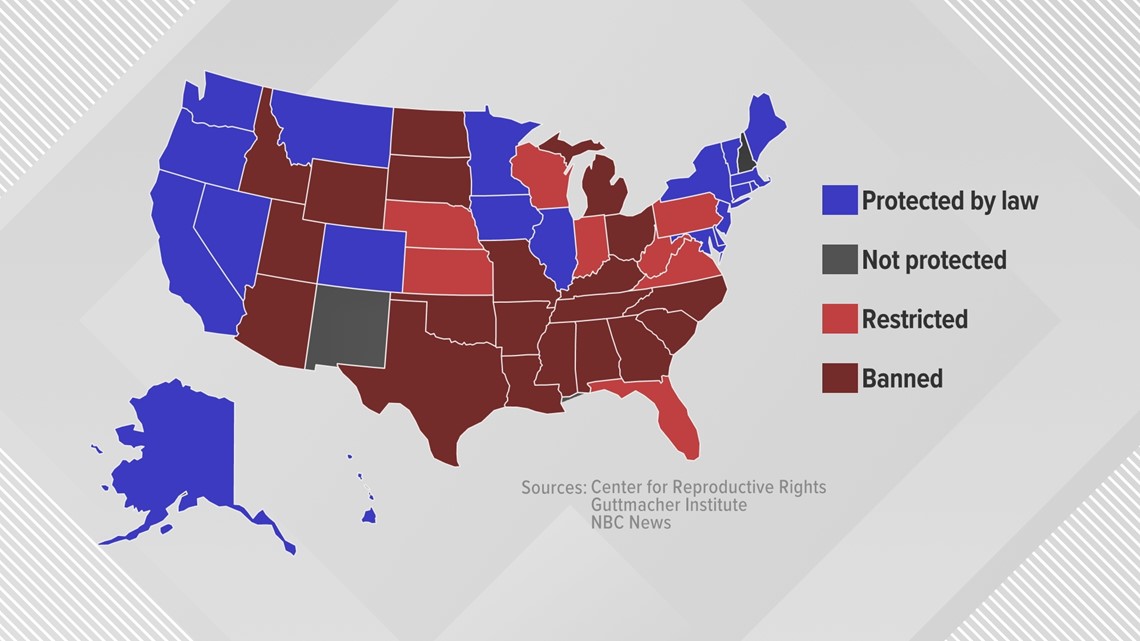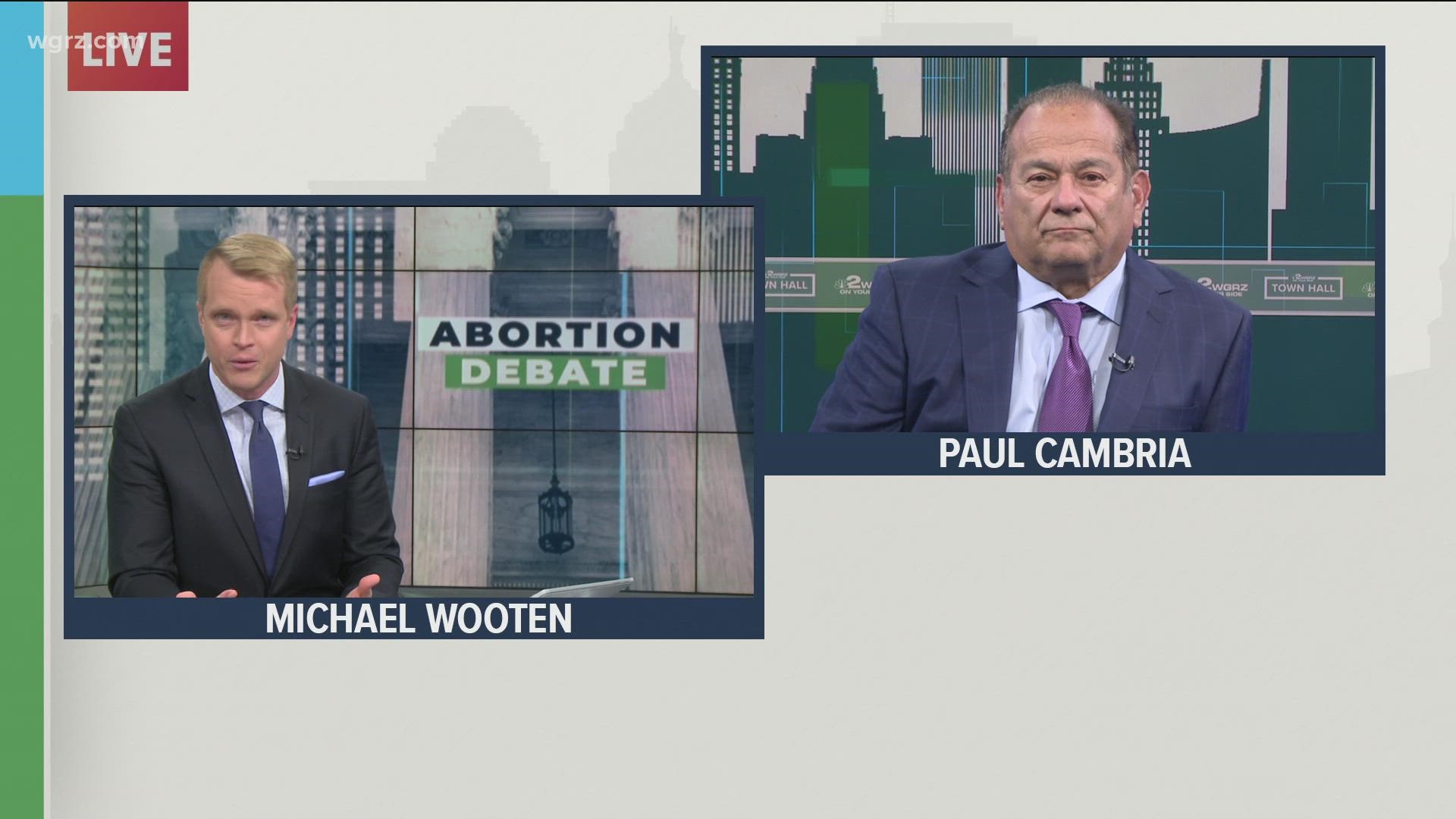BUFFALO, N.Y. — The Supreme Court ended constitutional protections for abortion that had been in place nearly 50 years in a decision by its conservative majority to overturn Roe v. Wade. Friday's outcome is expected to lead to abortion bans in roughly half the states in the U.S.
Last month, 2 On Your Side's Town Hall looked at the released draft of a US Supreme Court opinion regarding Roe v. Wade that had many people asking questions on what happens next. 2 On Your Side researched those answers for you. You can view our original reporting below:
What is Roe v. Wade?
Roe v. Wade was a landmark decision by the US Supreme Court in 1973 that ruled that the US Constitution protects a woman’s right to choose to have an abortion without government restriction. The case involved Norma McCorvey, who was identified as ‘Jane Roe’. McCorvey became pregnant in 1969 with her third child and wanted an abortion. She lived in Texas, where abortion was illegal unless the pregnancy affected the mother’s health. She filed a lawsuit in federal court alleging Texas’ law was unconstitutional. Henry ‘Wade’ was the Dallas County District Attorney at the time the court ruled in her favor, but the state appealed the decision to the US Supreme Court. The US Supreme Court ruled 7-2 in favor of McCorvey that the US Constitution provides a ‘right to privacy’ that protects a pregnant woman’s right to choose.
Did the Supreme Court overturn Roe V. Wade?
Not yet, but a draft opinion written by Associate Justice Samuel Alito was leaked to the press indicating the US Supreme Court’s majority would overturn the constitutional right to abortion. Chief Justice John Roberts confirmed the authenticity of the draft and ordered an investigation into the leak. UPDATE: On June 24, 2022, the Supreme Court overturned the Roe v. Wade decision.
What does it mean to overturn Roe v. Wade?
If Roe v. Wade is overturned, abortion rights would fall to elected officials to set state and local laws, although many legal experts believe Congress could also pass laws that would apply nationwide. Considering the political divide, it may be difficult for such a nationwide bill to become law.
What states would continue to allow abortions?
Even if Roe v. Wade is officially overturned by the US Supreme Court, abortion would remain legal in 30 states and Washington, DC, although it would be further restricted in some. More than a dozen states, including New York, have laws on the books that codify the Roe v. Wade decision into state law, so barring action at the federal level, abortion coverage would not change in those states.


Does New York State allow abortions?
As part of the New York State Reproductive Health Act, there are protections in state law that ensures safe and legal abortion in New York state. The NYS Reproductive Health Act states that "a health care practitioner licensed, certified, or authorized under title eight of the education law, acting within his or her lawful scope of practice, may perform an abortion." The NYS Reproductive Health Act also legalizes abortion past 24 weeks if it's determined that a woman's life or health are at risk.
Who is most affected if Roe v. Wade is overturned?
According to the CDC, In 2019, women in their 20s accounted for more than half of abortions (56.9%). Among areas that reported race by ethnicity data in 2019, non-Hispanic White women and non-Hispanic Black women accounted for the largest percentage of all abortions. However, non-Hispanic Black women had the highest abortion rate (23.8 abortions per 1,000 women) and ratio (386 abortions per 1,000 live births). The CDC also reports that abortion rates have decreased from 2010 to 2019 for all women, regardless of age.

